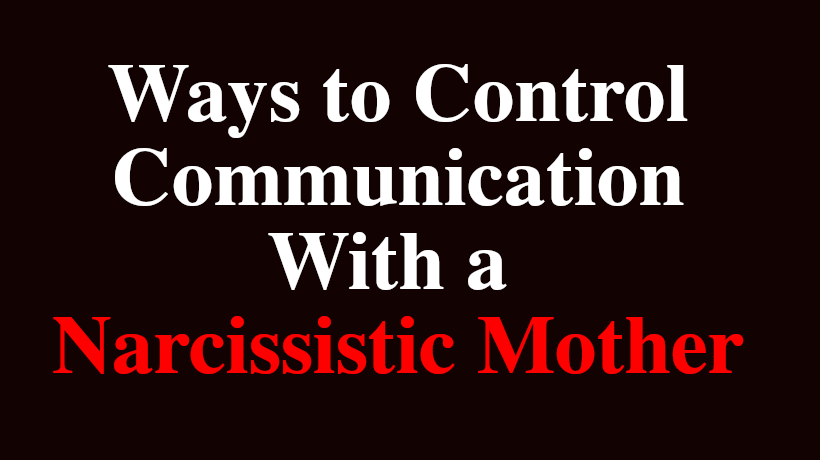Narcissists love to control others. Being in control gives them a sense of reassurance, helping them know that they will get the attention they want and avoid any surprises that may throw them off track.
Communicating with a narcissist may be hard sometimes, but it can be done. Below are five decisions you need to make to control the conversation with narcissists.
Decide how often you communicate
Do not fall into the trap of guilt-tripping or the silent treatment. To control the conversation, you first have to figure out how many times you want to spend the effort to talk to the narcissist in your life.
Decide the length of the conversation
Narcissists love to talk about themselves if they ever get the chance. Mariette Jansen, Ph.D., is a psychotherapist and life coach who had to decide how long she wanted to talk to her narcissistic mother.
“My phone calls were 20 minutes long. I set a timer, and when the timer went off, I came up with an excuse to end the conversation,” Jansen said. “Dinner is ready, we have to go shopping, delivery man, they all worked perfectly well (for me). She might be seething at the other end, but I had the control.”
When to communicate
Jansen had made Sundays the day to communicate with her mother. Make it work on your schedule, so you are not surprised by a sudden call.
“[Sundays] suited me as we were cooking, watching sports or had to be on our way to somewhere soon.”
Decide what topics to talk about
When talking to a narcissist, it is essential to have a few non-threatening topics to have up your sleeve. Jansen made sure her subjects were “not too personal, never revealing anything I was worried about and always ‘stroking’ her, asking for advice or referring to her knowledge.”
And decide what topics to avoid
Like the topics to talk about, it is also vital to have subjects you do not want to discuss with your narcissist. Avoid issues that are too personal or those that make you feel uncomfortable or vulnerable.
“There comes a point when you have to tell your narcissist that those topics are forbidden territory,” Jensen says. “ I told my mother that when she was bringing up those topics I would hang up. The moment she brought up the delicate topic, I would tell her we had to change the subject, and if she didn’t, I would hang up.”
She notes that this works wonders, especially if you stand your ground and act on your boundaries.
How to Talk to a Narcissist
Laurie Hollman, Ph.D., is a psychoanalyst and says, “It’s important to be aware of wording, so the narcissist doesn’t feel slighted, upstaged, or criticized, even constructively, when you engage in conversation.”
Although she tells readers to look out for wording and how we converse with a narcissist, most of the time, they probably won’t be listening anyway. “The narcissist expects what they say to be acknowledged, appreciated, praised, and confirmed.
Being alone with a narcissist
When you are forced to be alone with a narcissist, Hollman warns that they will most likely invite other strangers into the conversation without consulting you. This is a common tactic to receive the attention they want from others.
To close, Hollman notes that talking to a narcissist may not be a fulfilling experience. In most cases, it will be a one-sided experience.
“Only when their long-winded speaking begins to reach a close can you respond effectively, if at all,” Hollman states. “Do not ever expect the narcissist to empathize with your feelings in such a situation. They may be clueless as to how you feel if you try to explain or worse, not care.”



